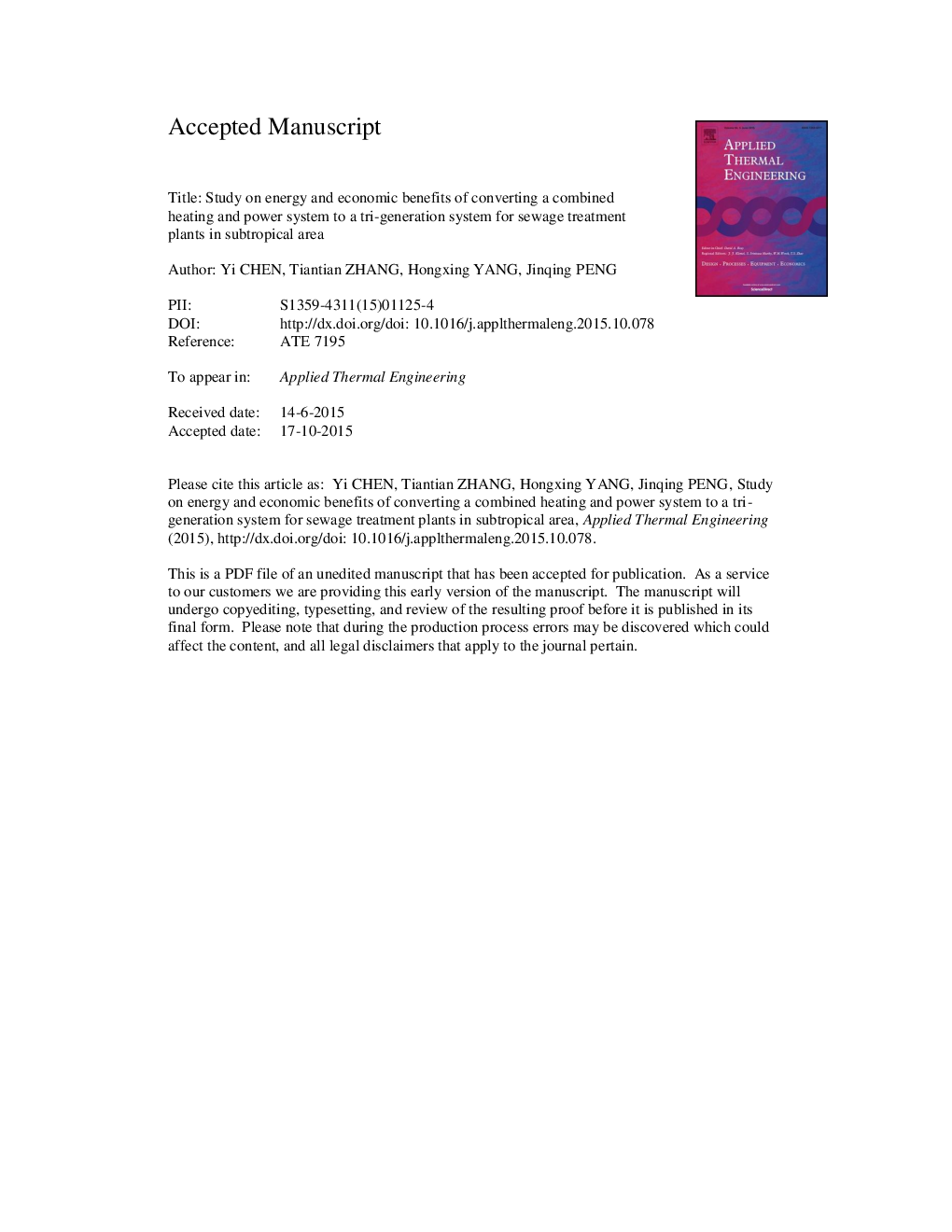| Article ID | Journal | Published Year | Pages | File Type |
|---|---|---|---|---|
| 644757 | Applied Thermal Engineering | 2016 | 39 Pages |
Abstract
A feasibility study was conducted on converting an existing combined heat and power (CHP) system into a tri-generation system for sewage treatment plant application. Usually, a biogas-driven CHP is used for both electricity generation and digester heating. However, a huge amount of heat has to be released during the summer in subtropical areas when the heating demand is low. So the tri-generation system, created by enhancing the CHP scheme with an absorption chiller, was proposed to address the defect. In summer, the huge amount of waste heat drives the chiller and produces chilled water for space cooling. Four possible tri-generation retrofitting schemes were proposed with different types of absorption chiller. The hourly dynamic energy performances of the four systems were simulated by the established mathematic models under Hong Kong weather data. Then detailed economic analysis was conducted to the four systems. The results show that the double effect absorption chiller driven by bypass of 450â°C flue gas is the optimal retrofitting scheme for its highest thermal efficiency, shortest payback period, better stability and easier control. The annual average thermal efficiency can be improved from 20.8% to 38.3%.
Related Topics
Physical Sciences and Engineering
Chemical Engineering
Fluid Flow and Transfer Processes
Authors
Yi Chen, Tiantian Zhang, Hongxing Yang, Jinqing Peng,
